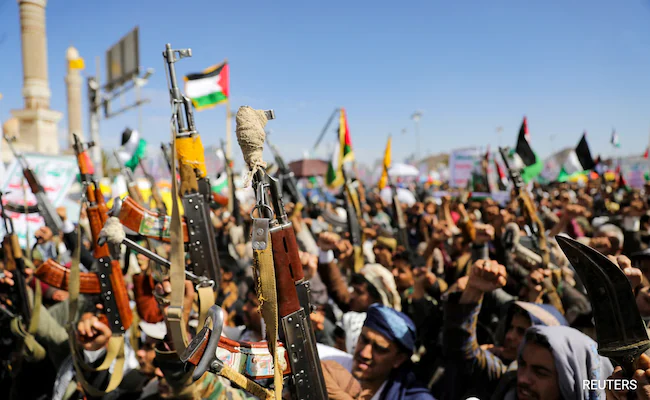On Thursday, Abdul Malik al-Houthi, the leader of Yemen’s Houthi rebels, announced a “military response” to the killing of Hamas leader Ismail Haniyeh. Israel is blamed for the attack, which occurred in Tehran. Al-Houthi condemned the act as a serious escalation by Israel. He called it a “shameless” and “dangerous” crime that violates international norms.
Houthi Rebels’ Actions
Since November, the Houthi rebels have been targeting ships in the Red Sea and Gulf of Aden. They have used drones and missiles for these attacks. The Houthis claim they are acting in support of Palestinians during the Gaza war. Their military actions reflect their stance as part of the “axis of resistance,” a coalition opposed to Israel.
Hamas Leader’s Death
In Tehran, an airstrike killed Ismail Haniyeh, the head of Hamas’ Politburo. He was in the Iranian capital for the inauguration of President Masoud Pezeshkian. Haniyeh and his bodyguard were killed in an airstrike on their residence. Iran has accused Israel of the assassination. However, Israel has not confirmed its involvement.
Reactions to the Attack
Al-Houthi denounced the killing of Haniyeh as a blatant violation of international laws. He also condemned another recent Israeli airstrike. This attack in Beirut resulted in the death of a senior Hezbollah commander, Fouad Shokor. Al-Houthi labeled this as a “dangerous escalation.”
Houthi Rebels’ Alliance
The Houthis control significant parts of northern Yemen. They are aligned with the anti-Israel “axis of resistance.” This axis includes Iran, Hezbollah, Hamas, and various militant groups in Iraq. The Houthis’ actions are part of their broader solidarity with these groups.
Ongoing Conflict
The conflict between Israel and these various groups continues to escalate. The Houthi’s response to Haniyeh’s death Is expected to increase tensions further. The situation in the region remains highly volatile as both sides prepare for possible further confrontations.

